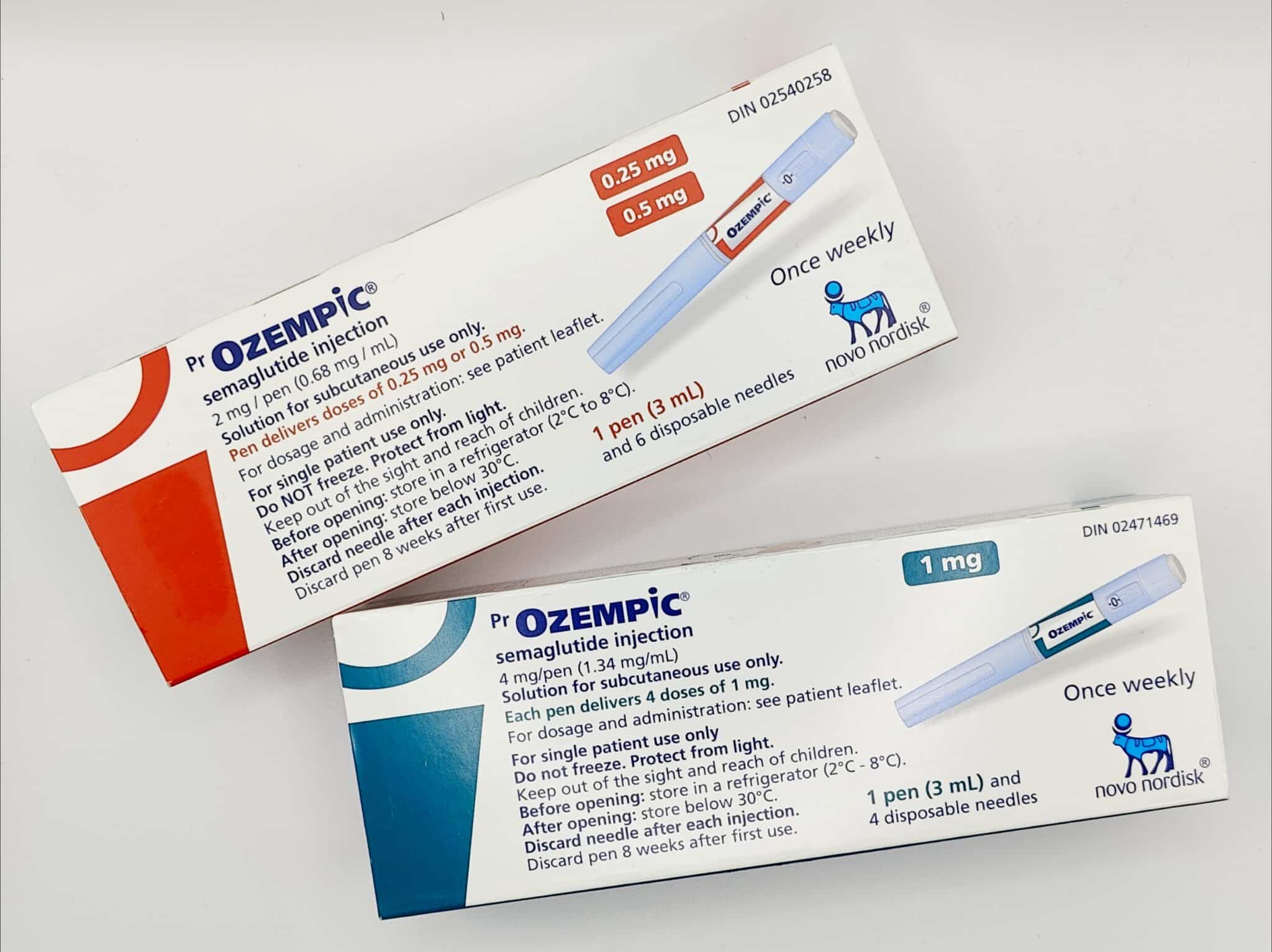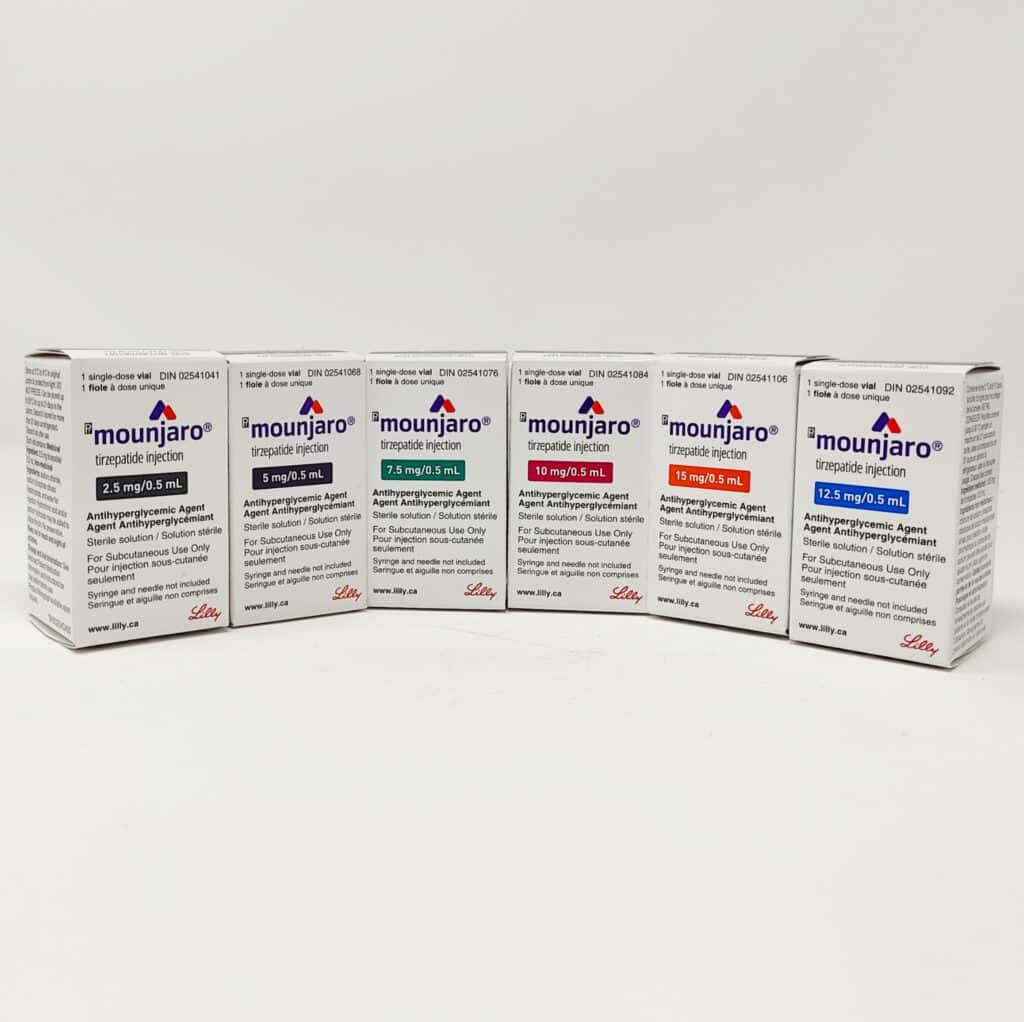What to Do If You Miss a Dose of Mounjaro, Ozempic, or Any GLP-1 Medication
What to Do If You Miss a Dose of Mounjaro, Ozempic, or Any GLP-1 Medication
- Jason K
Missing a dose of your GLP-1 medication, such as Mounjaro (tirzepatide) or Ozempic (semaglutide), can be concerning, but it’s a common occurrence that’s easy to manage with the right information. These medications are integral for managing type 2 diabetes and supporting weight loss, so staying consistent is key to their effectiveness. Here’s a detailed guide on how to handle a missed dose, the timing considerations, and when to restart or adjust your dosage if you’ve been off the medication for a while.
Understanding GLP-1 Medications
GLP-1 receptor agonists like Mounjaro and Ozempic work by mimicking the hormone GLP-1, which helps:
- Regulate blood sugar by stimulating insulin release and suppressing glucagon.
- Slow digestion to reduce appetite and promote a feeling of fullness.
- Support weight loss in addition to managing blood sugar levels.
These medications are typically administered once a week, offering convenience and sustained effects. However, their effectiveness depends on regular use, making it important to know what to do when you miss a dose.
What to Do If You Miss a Dose
If you miss your weekly dose of a GLP-1 medication, the steps to take depend on how long it has been since your scheduled injection:
If It’s Been Less Than 4 Days Since the Missed Dose:
- Take the missed dose as soon as possible.
- Resume your regular schedule on your usual injection day.
If It’s Been More Than 4 Days:
- Skip the missed dose entirely and wait until your next scheduled injection day.
- Do not double up or take extra medication to make up for the missed dose.
These guidelines ensure your treatment remains effective while minimizing the risk of side effects.
How Long Can You Go Without a Dose?
The long half-life of GLP-1 medications offers flexibility in managing missed doses. The half-life refers to the time it takes for half of the medication to be eliminated from your body.
- Ozempic: Has a half-life of approximately 7 days, meaning it stays in your system for about 4–5 weeks after the last dose.
- Mounjaro: Has a half-life of approximately 5 days, meaning it remains active for about 3–4 weeks.
Thanks to their long half-lives, these medications continue to provide some benefits even after a missed dose, though blood sugar control may gradually decline if doses are skipped repeatedly.
When Should You Restart or Titrate Back Up?
If you’ve been off your GLP-1 medication for an extended period, restarting at your previous dose might not be advisable. This is especially true if you experienced side effects, such as nausea or gastrointestinal discomfort, when first starting the medication.
If You’ve Missed 1–2 Weeks:
- Resume your usual dose. The medication’s lingering presence in your system should make it safe to continue at the previous level.
If You’ve Missed 3+ Weeks:
- Consult your healthcare provider. They may recommend restarting at a lower dose (e.g., 0.25 mg for Ozempic or 2.5 mg for Mounjaro) to reduce the risk of side effects.
- Gradually titrate up to your prescribed dose, following the standard schedule.
This gradual reintroduction ensures your body adjusts smoothly, minimizing potential discomfort.
Signs to Monitor After a Missed Dose
While missing a single dose isn’t usually harmful, you may notice changes in blood sugar control or appetite, such as:
- Higher Blood Sugar Levels: You may see slightly elevated glucose readings as the medication’s effects diminish.
- Increased Hunger: GLP-1 medications slow digestion, so missing a dose may lead to increased appetite or cravings.
- Reduced Weight Loss: If you’re using GLP-1 medications for weight management, missing doses can temporarily slow your progress.
If you experience significant changes or have concerns, contact your healthcare provider for guidance.
Tips to Stay Consistent with Your GLP-1 Medication
1. Set Weekly Reminders:
- Use your phone’s alarm or calendar to remind you of your injection day.
- Apps like MySugr or reminders from pharmacy services can help.
2. Plan Ahead for Travel:
- Store your medication properly, typically in a refrigerator, and pack it in a cooler if you’ll be traveling.
3. Involve Your Support System:
- Let family members or friends know about your medication schedule so they can help remind you if needed.
4. Refill on Time:
- Ensure you have your next dose ready before you run out by ordering from trusted sources, like a Canadian prescription referral service.
Why It’s Important to Stay on Track
Consistency is key for GLP-1 medications to deliver their full benefits, including improved blood sugar control, reduced appetite, and weight loss. Regular dosing helps maintain steady levels of the medication in your body, supporting long-term management of type 2 diabetes and related conditions.
Conclusion
Missing a dose of Mounjaro, Ozempic, or any GLP-1 medication isn’t a major setback, thanks to their long half-lives and sustained effects. However, taking steps to address missed doses and consulting your healthcare provider about restarting or titrating your dose is essential for staying on track with your treatment. With proper planning and support, you can ensure your medication works effectively, even if life occasionally gets in the way.


